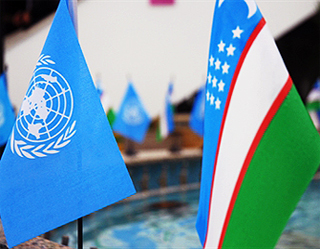
The course was organized within the framework of the UN Joint Programme “Sustaining livelihoods affected by the Aral Sea disaster” implemented jointly by five UN agencies in Uzbekistan, including UNDP, UNESCO, UNFPA, WHO and UNV in cooperation with the Government of Uzbekistan and the Council of Ministers of the Republic of Karakalpakstan.
The Joint Programme is financed by the UN Human Security Trust Fund. Aral Sea crises is considered one of the largest global environmental disasters and poses a wide array of environmental, socio-economic, demographic and humanitarian issues for the population of the region. Moreover, the environmental crisis puts serious implications on the future sustainable development of the region and creates various human insecurities.
Effective mitigation of the consequences of the crisis requires timely and effective action of the regional and local public authorities, including the design and implementation of sound policies and strategies related to ensuring income generation opportunities, improvement of primary healthcare and basic social infrastructure, as well as introduction of efficient water use and management systems, large-scale biodiversity conservation and community forestry activities. How can we ensure that regional and local authorities of Karakalpakstan are well prepared to implement public reforms and fulfill national priorities in response to the emerging environmental crisis? One of the tools used widely across the globe in public sector management is the Results-based Management (RBM) approach, which implies identification of specific performance results for the public institution and its units, as well as setting out indicators to track the progress made towards the desired results. Such approach allows to improve the efficiency of work processes and to ensure achievement of specific goals on various levels, including senior, management, department and unit levels.
Over the course of the training, 26 local and regional public officials from Muynak, Shumanay, and Kanlikul districts learned the specific steps of RBM, including problem analysis and identification of root causes, stakeholder analysis, formulation of expected results, identification of specific deadlines, strategy development, results analysis, monitoring and self-evaluation process. Keunimjaeva Bibinaz is a local trainer, previously trained by UN Joint Programme in 2012, developed the materials on RBM relevant to the specific context of Karakalpakstan and UNICEF training module, and delivered the training to her peers.
According to Yuriy Naumov, National Consultant of UN Joint Programme, who has been coaching Bibinaz in this process, "the participants improved their understanding of the contemporary approaches to public management, as well as widened their knowledge of best-practices. As a result of the course, they are able to clearly formulate their work plans, conduct situation analysis and design more effective local development plans". The course involved interactive methods, including extensive group work and problem solving.